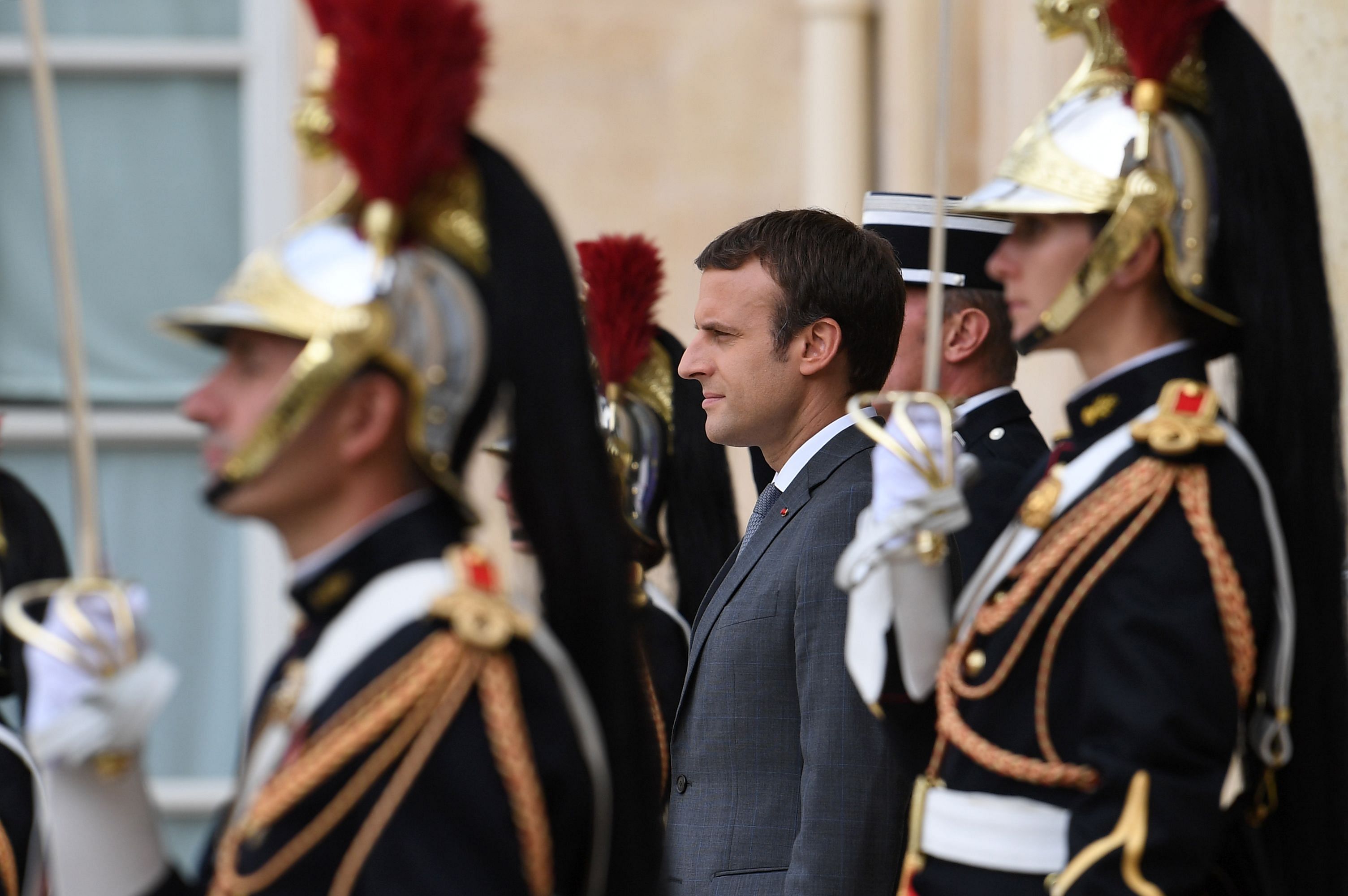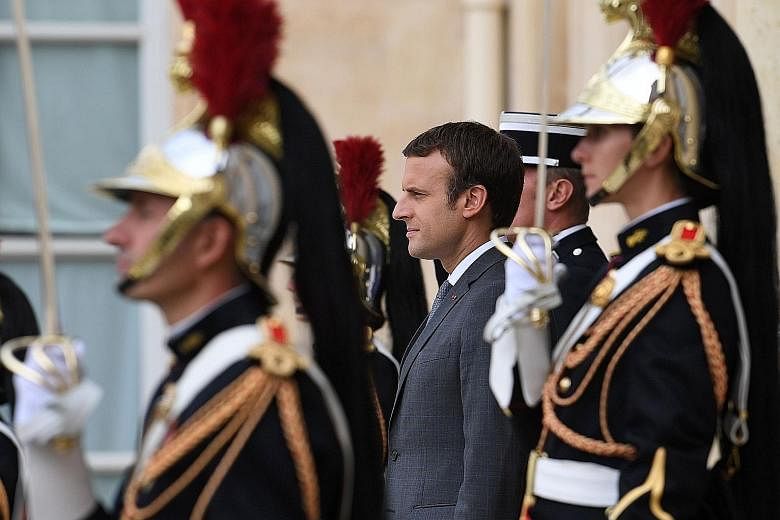By established custom, France's political life largely stops this week as Cabinet ministers, parliamentarians and senior civil servants decamp to their summer homes for the month, abandoning Paris to hordes of tourists.
But few of the country's politicians will truly rest this month. For although President Emmanuel Macron and his Cabinet remain firmly in control, there are disquieting signs that the popularity of the newly elected leader is already slipping badly, with most of the tough economic choices still ahead of him.
Mr Macron's approval ratings remain healthy. According to surveys conducted last week by France's Ifop polling agency, 54 per cent of the electorate approve of their President, a figure which many other European leaders can only dream of.
But his popularity is a full 10 percentage points down by comparison to the two-thirds majority which elected the 39-year-old as France's youngest-ever president just two months ago. And although a drop in approval ratings was inevitable, "never before has a newly elected president witnessed such a fast decline in popularity during the first summer following his election", Ifop's pollsters noted.
One explanation for such a steep drop in popularity is Mr Macron's curious love for the trappings of the presidency. Addressing sailors on France's aircraft carrier while dressed in a pilot's bomber jacket, marching up and down rows of honour guards, summoning lawmakers to gilded palaces for dressing down sessions - Mr Macron has done them all and everywhere he goes, there are parades, medals and other paraphernalia of supreme power.
Mr Macron's close advisers claim this has nothing to do with the President's elevated opinion of himself, but is part of a strategy to restore pride in national institutions and ensure that patriotism does not get hijacked by extreme right-wingers.

Perhaps, but the staged ceremonies are beginning to grate. There is a fine line between acting as a powerful president - something the French like - and behaving like kings, people whom the French usually like to decapitate.
-
UNPOPULAR MOVES
-
• Public row with armed forces chief General Pierre de Villiers over an €850 million (S$1.4 billion) cut to the French defence budget, which led to the official's resignation.
• Cuts to housing benefits by €5 a month from October, which will affect millions of French people including many living below the poverty line.
• Plans to cut €13 billion in local government budgets by 2022. Claiming he was surprised to discover that France's finances are in worse shape than he anticipated.
• Carefully choreographed public appearances that project the president's power, while reducing interaction with the media.
And despite his assured demeanour, Mr Macron has also been guilty of some fundamental political errors. The first was to claim, soon after he came to office, to have discovered that France's finances are in worse shape than he anticipated. The country's public deficit last year was 3.4 per cent of gross domestic product, way above the 3 per cent limit dictated by France's membership in the euro zone, and government spending accounted for 56 per cent of GDP, the highest in the 28-nation European Union.
"France has an addiction to public spending, and like all addictions, it requires willpower and courage to kick it," said Prime Minister Edouard Philippe.
But President Macron's claims that some of these awful figures surprised him convinced few voters since he is an investment banker by profession and served as economy minister until last year, so presumably he had plenty of time to study France's financial books.
And the measures he took to address France's finances looked decidedly goofy. After praising the armed forces and surrounding himself with honour guards, Mr Macron abruptly announced a cut of €850 million (S$1.4 billion) in the defence budget, publicly humiliating General Pierre de Villiers, chief of the armed forces, who resigned claiming that he could "no longer guarantee the protection of France".
The President then insisted on shaving off an average of €5 from a monthly housing benefit given to millions of poor French, while at the same time imposing a cap on the upper limit of a property tax, a move likely to benefit only France's affluent middle class. Although Mr Macron's government has promised a bigger overhaul of both labour laws and the taxation regimes, both the details and the timings of these remain unclear.
People close to the government claim that the difficulties represent just the usual friction that accompanies any new administration.
They also justifiably point out that Mr Macron has been more courageous than any of his predecessors in mapping out both tax and expenditure cuts as key instruments in stimulating France's sluggish economy, despite the fact that both are politically controversial.
Still, Mr Macron remains vulnerable, if only because he has personalised power to such an extent that he will shoulder all the blame for what may go wrong. And there is plenty of potential for that when French politics returns to its normal, febrile activity at the end of the month.
Jonathan Eyal


